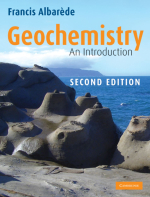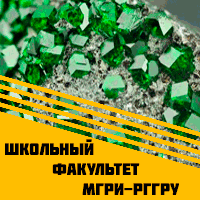Добрый день, Коллеги. Важное сообщение, просьба принять участие. Музей Ферсмана ищет помощь для реставрационных работ в помещении. Подробности по ссылке
Geochemistry. An Introduction / Геохимия. Введение
Geochemistry utilizes the principles of chemistry to explain the mechanisms regulating the workings – past and present – of the major geological systems such as the Earth’s mantle, its crust, its oceans, and its atmosphere. Geochemistry only really came of age as a science in the 1950s, when it was able to provide geologists with the means to analyze chemical elements or to determine the abundances of isotopes, and more significantly still when geologists, chemists, and physicists managed to bridge the chasms of mutual ignorance that had separated their various fields of inquiry. Geochemistry has been at the forefront of advances in a number of widely differing domains. It has made important contributions to our understanding of many terrestrial and planetary processes, such as mantle convection, the formation of planets, the origin of granite and basalt, sedimentation, changes in the Earth’s oceans and climates, and the origin of mineral deposits, to mention only a few important issues. And the way geochemists are perceived has also changed substantially over recent decades, from laboratory workers in their white coats providing age measurements for geologists or assays for mining engineers to today’s perception of them as scientists in their own right developing their own areas of investigation, testing their own models, and making daily use of the most demanding concepts of chemistry and physics. Moreover, because geochemists generate much of their raw data in the form of chemical or isotopic analyses of rocks and fluids, the development of analytical techniques has become particularly significant within this discipline. <...>




